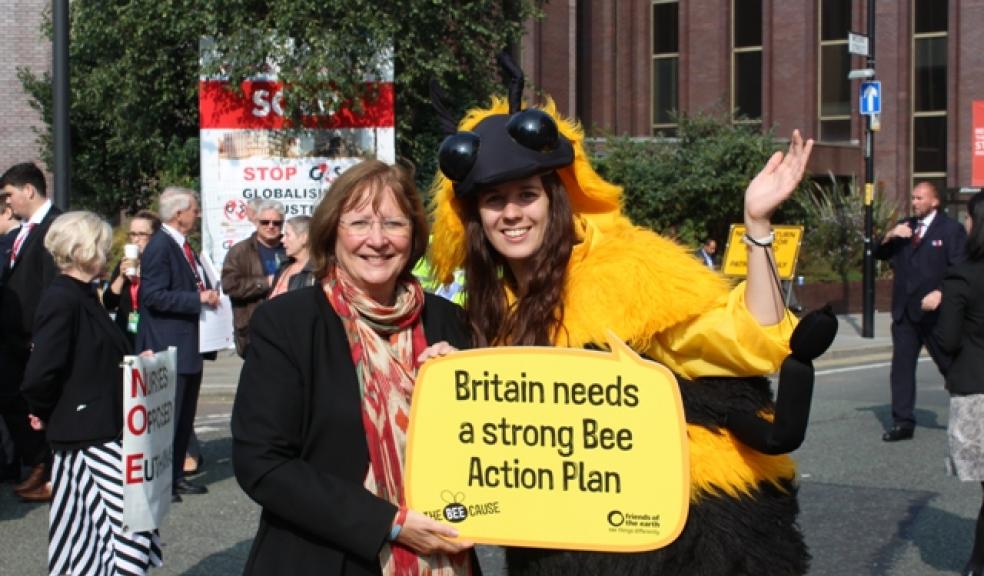
Alison Seabeck MP calls on Government to take action to save bees
Alison Seabeck, MP for Plymouth Moor View, joined Friends of the Earth’s Bee Cause campaigners on 23rd September to support calls for the Government to improve its plan to protect bees and other vital pollinating insects, due to be published later this autumn.
The use of toxic pesticides and the loss of habitat are major factors causing the drop in bee populations. 97% of the UK’s wildflower meadows have disappeared in the past 60 years. And important bee habitat continues to be lost to development. Over 70% of UK land is farmed, so what happens there is pivotal to bees’ heath.
Alison Seabeck MP said: “It’s clear that many people in Plymouth and around the country are deeply concerned about the loss of our bees. I’m backing Friends of the Earth’s Bee Cause Campaign for a tough national Bee Action Plan that fully tackles all the threats bees face, from pesticides to how land is used.
“In Britain we need to create new habitats for bees, reduce our reliance on pesticides, and look at how new developments built to tackle the housing shortage include bee-friendly green spaces too.”
Friends of the Earth Chief Executive, Andy Atkins, said: “It’s crunch time for our bees – people, businesses and politicians from all parties have persuaded the Government to draw up an action plan to reverse bee decline.
“But the draft is too vague about how farmers and developers will help bees and fails to tackle the widespread use of toxic pesticides
That’s why it’s so important that MPs like Alison Seabeck have put their support behind the campaign to make sure that Britain’s hard-working bees get the proper rescue plan they need.”
Friends of the Earth activists around the country are organising a Bee Cause Week of Action during 20-28 September, creating spaces with the right plants to provide hungry and homeless bees with food and shelter.
Key facts about bees:
- Numbers of bees have been dropping at an alarming rate over recent years, with more than 20 UK bee species already extinct and about a quarter of those remaining at risk.
- Bees pollinate 75% of our main crops worldwide, including some of our favourite fruits like apples, strawberries and tomatoes, and textiles such as cotton.
- An independent study by the University of Reading estimates that it would cost over £1.8 billion every year to pollinate UK crops by hand.













